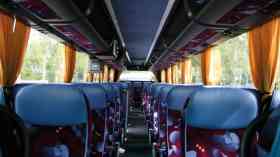Education for a connected world
 The 2014 national curriculum introduces a new subject, computing, which replaces ICT.
The 2014 national curriculum introduces a new subject, computing, which replaces ICT.
Computing is concerned with how computers and computer systems work, and how they are designed and programmed. Pupils studying computing will gain an understanding of computational systems of all kinds, whether
or not they include computers. Computational thinking provides insights into many areas of the curriculum, and influences work of a wide range of disciplines.
There are three clear aspects of the computing curriculum: computer science (CS), information technology (IT) and digital literacy (DL).
The new curriculum will be taught from September this year, which is now fast approaching. For the proportion of schools E
that are affected (this does not include Academies, Free Schools and Independent Schools), there is now a rapidly reducing window of opportunity to prepare. What should be the priorities of school leaders and managers in the remaining weeks?
Auditing
Firstly, schools should have audited their existing provision, and begun to obtain a clear view of what needs to be modified or expanded, to ensure that the whole of the Computing Programme of Study is covered. Inevitably, this will mean that good quality professional development will need to be sought. Naace, through its members, sponsors and partners, offers many rich opportunities to develop staff expertise to then develop an exciting and innovative learning experience for young people.
Computer science
Secondly, the new Computing curriculum contains a greater emphasis on Computer Science with more explicit programming and coding. Naace members and its partners at Computing At School (CAS) have been busy providing support. There are a number of initiatives due to be announced through the Government’s Computing matched funding schemes, where £500,000 was made available to train teachers in software coding.
With the new curriculum, please remember it is all about creating exciting experiences where children write programs, if your curriculum is not achieving this it needs an urgent overhaul.
Digital literacy
Thirdly we must not forget that Computing includes Digital Literacy which means that all the good things schools have been doing for many years like creating videos, interactive presentations, blogs and such, are still valid both for the Computing subject and also when prioritising the use of technology as a tool for learning across the wider curriculum provision of the school.
Information technology
Fourthly, Computing includes Information Technology which is simply a deep understanding of how digital artefacts actually work and communicate with each other. However there is a significant challenge to make sure that the quality of provision for young learners is paramount. There is a feeling and some evidence that this aspect of the previous curriculum was poorly taught and negatively experienced by young people. This is not now sustainable and we should expect the very highest standard of impactful provision; meaningful, challenging, stimulating and real, making experiences for young learners.
Comparing performance
Fifthly, we all want to know how well our children are doing, and that their performance is comparable with children in other schools. This will be very difficult when the new curriculum is launched, because the old reference points, called levels, will not be recreated for the new subject. Naace has provided support in two ways; by providing a full list of what our member schools and partners have developed already, and by creating a Standards Library, which is a collection of curated pupil work classified to show what can be progressively achieved.
The Standards Library will provide national comparators and facilitate raising the baseline of teacher expectation for what young people can achieve. It will not set limits and will by peer evaluation and comment encourage colleagues to stretch themselves along with the high expectations they have of their pupils.
Responsible use
Finally, we must not forget that Computing includes safe and responsible use: it is absolutely imperative that there is a whole school commitment and lead for safe and responsible use but within the specialist subject there will always be opportunities to deepen and extend learning.
Curriculum provisions
In parallel with this strategic consideration of curriculum provision and human resource Naace believes that schools should not hold back from continuing to invest in appropriate technology that delivers a relevant experience for young people. Keeping as a guiding principle that all such investment should be focused in its ambition to positively impact outcomes and have a clear methodology that describes how it will be achieved.
We at Naace are always looking for partners with complementary interests and expertise, to further our agenda of enhancing learning through the appropriate use of technology in a connected world. The Standards Library is an example of this partnership approach in practice, we remain open to more and are currently working on a number of fronts to add value to our members and to the UK Education community.
A uniting philosophy of the Naace membership community is that curriculum provision should be real, relevant and significantly involve creating material solutions to real world challenges and sharing them with a constructive audience. If your new Computing Curriculum feels like this then your school could look at evidencing a Third Millennium approach to learning, a naace award that celebrates schools’ achievements in creating an environment and curriculum that stimulate more and better learning, making full use of the opportunities presented by technology.
After over 30 years as a community, we at Naace believe that we may be at a turning point in the use of technology for learning. Soon, powerful artefacts will be so commonplace as to be invisible. Their potential for learning for all pupils has never been greater. The challenge for all schools is to use the new Subject of Computing as a driver for excellence for all pupils: the challenge for our nation is to realise the vision of curriculum reform in a new generation of innovative, creative young entrepreneurs.
Further information
www.naace.co.uk
Latest News
30/10/2025 - 01:28
In the wake of the Raac crisis, the DfE spent £5 million on research into the condition of school buildings, which is due to conclude in spring 2026.
30/10/2025 - 01:09
Malmesbury Primary School in Wiltshire has submitted plans for a major expansion, funded by entrepreneur James Dyson.
30/10/2025 - 00:55
Monday's Every Pair Tells a Story campaign to protest to highlight the national crisis in SEND provision.
29/10/2025 - 09:19
Estimated data from the Department for Education reveals that 470,000 pupils under 16s use local authority funded transport to get to school.
28/10/2025 - 09:29
Timeline set for removal of Reinforced Autoclaved Aerated Concrete







